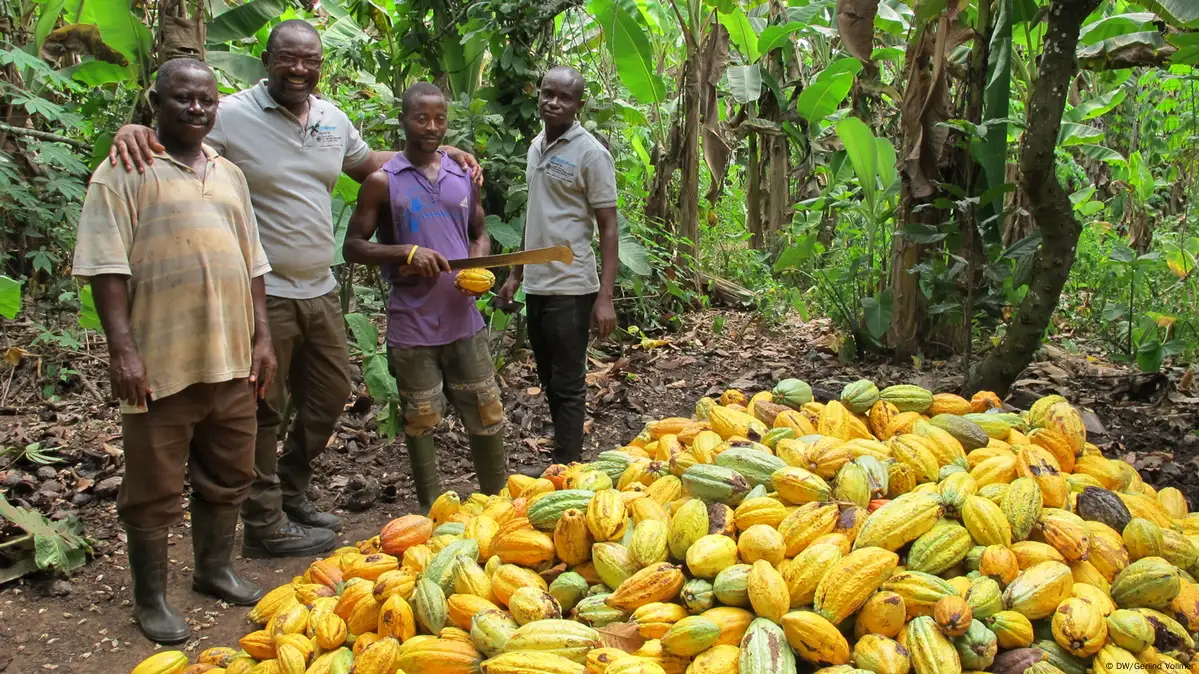Polysulphate® strikes again with an average banana yield increase of 25% after the first application.
“I have found polysulphate to be a valuable source of ORGANIC NUTRIENT for musa (banana and plantains); providing an amazing blend of Calcium, Potassium, Magnesium and Sulphur.” - Anthony Blay, Director Agriculture, Volta River Estate Ltd (VREL)
Global Polysulphate® use continues to report an exceptional range of benefits. Polysulphate® is a soluble, easily absorbed, organic, and cost-effective solution for all crop nutrition. Polyhalite (marketed as Polysulphate® fertilizer) is UK-sourced, has a low carbon footprint, and is registered as organic in many countries (including EcoCert and OMRI). Unlike blended or compound fertilizer, Polysulphate is available in its natural state. It is mined, crushed, screened, and bagged without chemical separation or other industrial processes. It contains four naturally occurring macronutrients:
- 19.2% Sulphur (S)
- 12.2% Calcium (Ca)
- 14% Potassium (K)
- 12.2% Magnesium (Mg)
These macronutrients are required by all plants, and in this blog, we look at their impact on banana growth.

Volta River Estate Ltd. (VREL) being a premium company is among the plantations in Ghana using Polysulphate®. VREL was founded in 1988 and became the world’s first Fairtrade-certified banana producer in 1996. Today VREL is exporting over 10,000mt. Fairtrade bananas yearly and employ 700 people. In 2019 USD 400,000 of Fairtrade premium was received and invested in the local communities. VREL, directly and indirectly, supports the livelihoods of over 4,000 community members.

Plants require nutrients to grow and develop, but nutrients in their optimal proportion ensure more than just growth, which is promoting a healthy, disease-free, and high-yielding plant.
Polysulphate® was applied at VREL after soil analysis indicating calcium and potassium deficiencies. A deficient plant is more prone to diseases, in the case of bananas, it lowers plant resistance to the black Sigatoka disease. This means more pruning of infected leaves, reducing the photosynthetic capability of every pruned plant. A reduction in photosynthates means fewer carbohydrates and a resultant reduction in fruiting, yield, and post-harvest.
An application of Polysulphate® at a rate of 25kg/Ha per month (300kg/Ha/year) blended with T15 performed the magic. The results were impressive, with Calcium and Magnesium deficiencies corrected while fulfilling Potassium requirements as well - reducing the amount of K to be applied. The Sulphur in Polysulphate® is important for chlorophyll synthesis, promotes efficient utilization of nitrogen, and plays an important role in the structure of proteins, amino acids, and vitamins.
Periodic analysis after the application showed deficiencies were corrected. Optimal levels of Ca reduced the black Sigatoka disease drastically and Ca influenced plants’ resistance to Sigatoka, hence the presence of more leaves to manufacture photosynthesis. The more photosynthates the more the sinks. Also, the Ca promoted Plant and fruit integrity as well as the storage quality and green life of bananas. For the export market, the latter mentioned is an essential prerequisite.
Furthermore, as an extra benefit, magnesium induces chlorophyll production and serves as a metabolic activator for carbohydrates, fats, and proteins, in addition to its influence on P-transport. Again, the bonus K supplied by Polysulphate® promoted the transport and accumulation of sugars, number of fruits per bunch, fruit size, and pulp content of bananas. All leading to an overall direct effect on bunch weight and yield.

In brief, experience with Polysulphate® across VREL fields was remarkable, the S, Ca, K and Mg greatly contributed to well-developed, uniform, and healthy plants. This was evident with an average yield increase of 25% after the first application. We strongly recommend Polysulphate® for all plantains including bananas and plantains.



Polysulphate® is available in both granular (2-4mm) and powder form. Contact Benjie, the author and Head Agronomist at Demeter Ghana Ltd for more information at +233 24 293 2521.





